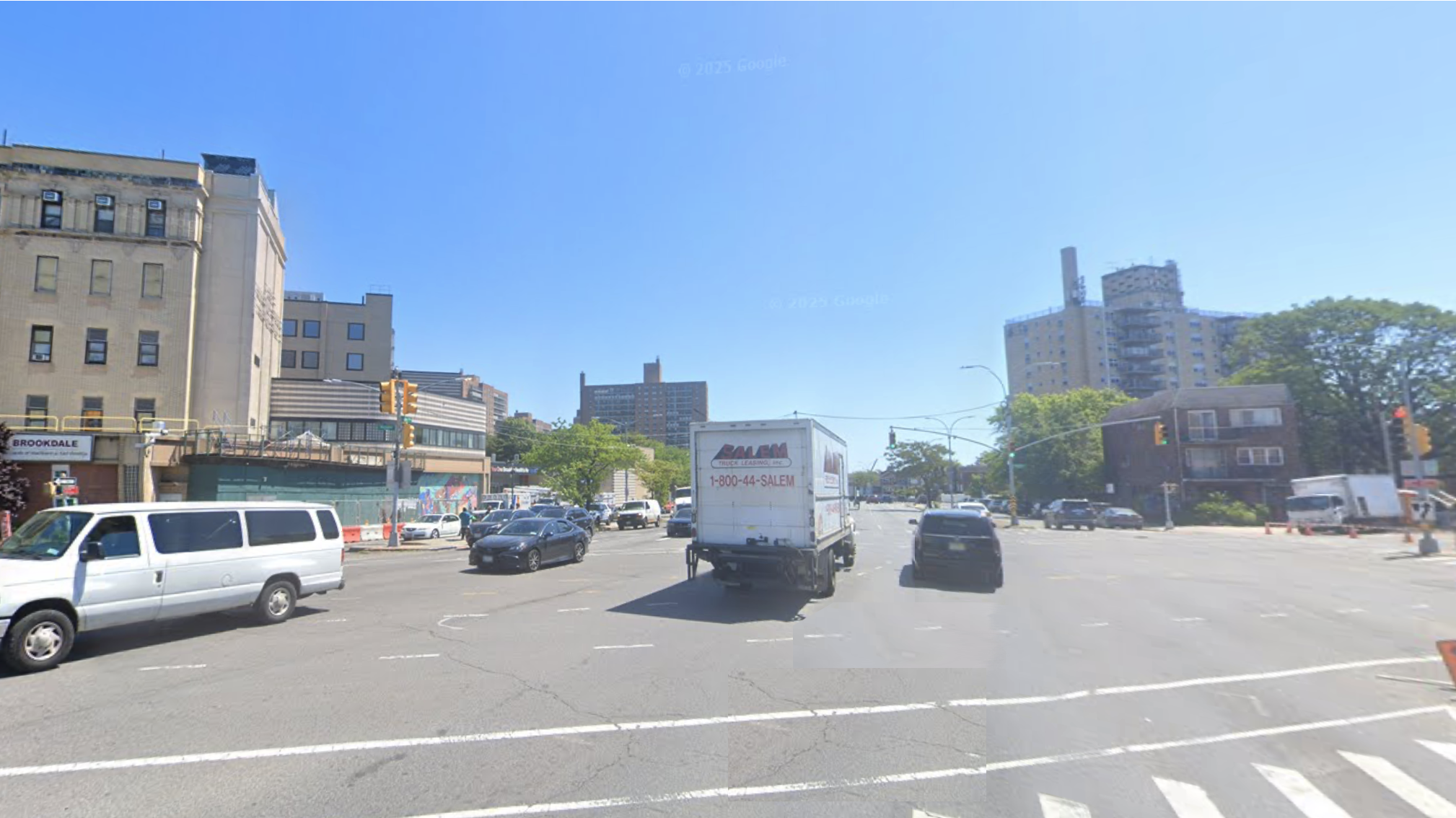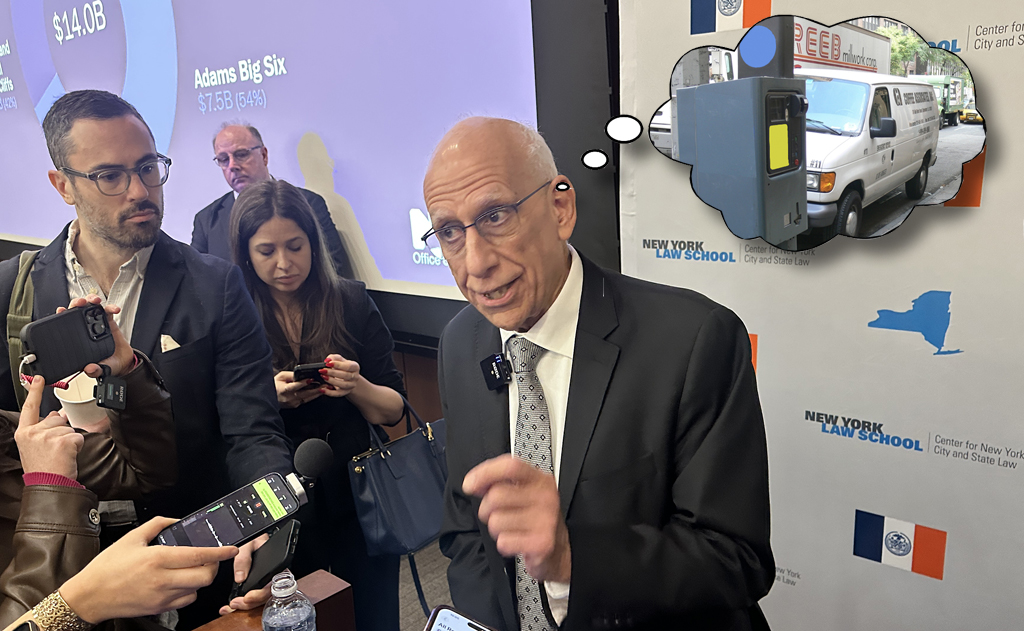If the U.S. had a national transportation policy, this story of corruption and waste never would have happened.

But an enduring feature of the current policy predicament is that once federal funding is in the hands of state DOTs, they more or less have a blank check, and the merit of any given transportation project often matters less than who's boosting it. In no state is this more apparent than Texas. And no Texas transportation project has been bought-and-paid-for so unabashedly as the Grand Parkway.
The Grand Parkway is Houston's $5.2 billion, 180-mile third outerbelt. This September, Texas DOT broke ground on the newest segment of the highway, funded in part with money from the 2009 stimulus package. Constructed piecemeal over decades through largely undeveloped land outside one of the nation's fastest growing cities, the Grand Parkway is a pointed demonstration of how a state can fritter away billions in federal transportation funds for the benefit of a small group of well-connected people.
In April, when Streetsblog interviewed Billy Burge, head of the pro-highway, non-profit Grand Parkway Association, he conceded that the outerbelt's latest expansion -- Segment E, through the Katy Prairie -- wasn't even intended to handle increased traffic. He was pretty clear that the project was about enabling the development of rural land into large-lot, detached single-family homes. "You can call it sprawl, or you can call it quality of life," he said.
But Burge didn't mention that before becoming head of the Grand Parkway Association, he had cashed in on that growth as a developer. Or that, thanks to a special Texas regulation, the Grand Parkway Association had been granted quasi-governmental powers. That's just how it goes in Texas, where the businessmen fund the politicians, the politicians appoint the businessmen to public office, and the office holders funnel taxpayer funds to projects that enrich their business interests.
The Grand Parkway was first conceived as a futuristic, pie-in-the-sky, long-term vision in the 1960s, when magic highway delusions reached their apex in America. But the plan was largely forgotten by the time Billy Burge Jr. and Bob Lanier, both major landowners along the corridor, teamed up to resurrect it in 1984.
At the time, Lanier, who would go on to become Houston's mayor, owned 1,700 acres along the proposed Parkway. He was also the head of the Texas State Highway Commission, the five-member decision making arm of Texas DOT.
Burge was serving as the head of Metro, Houston's transit authority. He was also the developer of Cinco Ranch, a five-square-mile master-planned community that is now home to 11,000 people. The first segment of the Grand Parkway directly bisected Burge's development.
The pair worked in partnership with the Grand Parkway Association -- basically an interest group formed to ensure the highway's completion. Together they raised money for feasibility studies and offered to donate the land for the first section of the highway, if the state would finance the project, according to the Houston Press. At the time, the Grand Parkway Association counted some of the region's biggest real estate magnates among its members, including Walter Mischer Jr., developer of 120,000 homes in the Houston region.
Funding for construction was secured by Ed Emmett, a state rep who was also working as the paid director of a non-profit pro-suburban development group called the North Houston Association. (He resigned from that position after local advocates alleged conflict of interest.) During his time in the state legislature, Emmett had previously helped win approval for the special Texas law that lets non-profit groups solicit donations to pay for engineering and the acquisition of rights-of-way for state highway projects. The law enabled the creation of the Grand Parkway Association.
In the decades that followed, both Lanier and Burge continued to use their positions of authority over taxpayer funds to advance this controversial project, even as they were directly profiting from those decisions.
As a member of the State Highway Commission, Lanier voted six times to advance the Grand Parkway, but then abstained from the vote for the segment of the highway that went directly though his own land, according to the Houston Chronicle.
In 1989, while serving as head of the Metro board, Lanier set aside 25 percent of the agency's one cent sales tax revenues for "general mobility projects," diverting about $180 million annually. With Burge also still sitting and voting on the board of Metro, Lanier diverted $4.5 million from the transit fund's coffers to help further design work on the Grand Parkway.
The massive highway has not moved forward without resistance. The latest skirmish revolved around Segment E, a $460 million, 15.2-mile section through the Katy Prairie. This expansion phase carries an added bit of drama, because it will bisect a beloved wildlife refuge and one of the country's last remaining tall-grass prairies. Environmental and sustainability advocates fought tooth and nail to keep the project from moving forward.
Ground was broken on the project in September. Meanwhile, the Sierra Club is still fighting the Army Corps of Engineers in court to prevent construction. The battle over Segment E is likely lost, concedes Jay Crossley at the local think tank Houston Tomorrow. The freeway fight will resume over section F.
For a while, it had looked like Houston Tomorrow, the Sierra Club and hundreds of citizens who wrote to express their opposition to the plan [PDF] would prevail. Because Texas is, well, broke. The state is $315 billion shy of what it needs to keep its existing transportation system in good order, according to a recent article in the Houston Chronicle.
But just when it seemed sensible policy would win out over Houston's good-old-boy network of suburban real estate moguls, another high-profile developer stepped up to the plate. That man's name is Ned Holmes.
Streetsblog will continue this tale of Texas transportation woe in a second post. Stay tuned.






